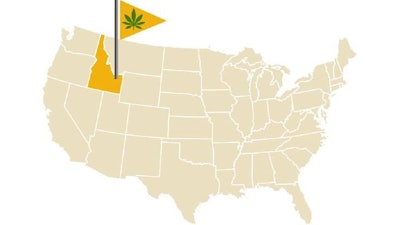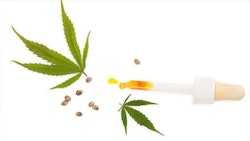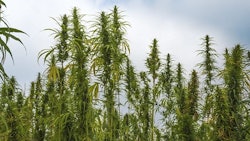
Idaho is retaining its status as one of the few remaining states banning hemp production.
After two days of debate and in a narrow 8-7 vote, the state’s House State Affairs Committee voted to kill a bill that would allow farmers to begin growing the crop, reports the Idaho Statesman.
The bill would have directed the state’s department of agriculture to develop a plan for issuing licenses, testing and transporting hemp. It would not have legalized cannabidiol (CBD), and hemp would have remained a Schedule I drug but would gain a separate definition from marijuana. The bill passed the Senate in February.
Idaho is likely to soon be just one of two states, along with Mississippi, where hemp production is not permitted. Hemp production isn't currently permitted in South Dakota, but the state's House and Senate approved a bill legalizing hemp March 11, and state Gov. Kristi Noem has indicated she would pass the bill if it reaches her desk.
The state currently prohibits hemp possession unless it contains 0% tetrahydrocannabinol (THC). The state’s board of pharmacy has also issued statements cautioning pharmacies against possessing or selling hemp-derived CBD products, adding that manufacturers’ claims of THC-free products would not protect them from administrative, civil or criminal penalties.
Hemp in Idaho has already had a rocky, controversial history. The Idaho Legislature considered legislation that would have permitted research, production, regulation and transport of hemp in 2019, but lawmakers couldn’t reach a consensus by the time the state’s legislative session ended.
Police in the state have seized several large trucks full of hemp between 2018 and early 2019, mistaking it for marijuana. All three drivers involved in the situations served jail time and had to pay fees and restitution. One of the companies, Big Sky Scientific, went on to sue the state police in a case that is still moving through courts.
Following those debacles, state Gov. Brad Little issued an executive order in November 2019 legalizing interstate transport of hemp in line with federal regulations.
“From the start, I have stated I am not opposed to a new crop such as hemp, but that we need to be sure the production and shipping of industrial hemp is not a front to smuggle illicit drugs into and around Idaho,” Little said in a public statement after initiating the executive order, which he said was meant to be a “stopgap measure” until the state reached a more permanent legislation.
The fear over promoting marijuana trafficking is one that was shared by opponents of the bill, according to the Idaho Statesman. Monte Stiles, a retired prosecutor, told the outlet that “the culture of hemp is the culture of marijuana.”
Rod Skyles, a hemp entrepreneur in the state, told the outlet he disagreed: “Comparing marijuana and hemp is like comparing a house cat and a mountain lion.”






















